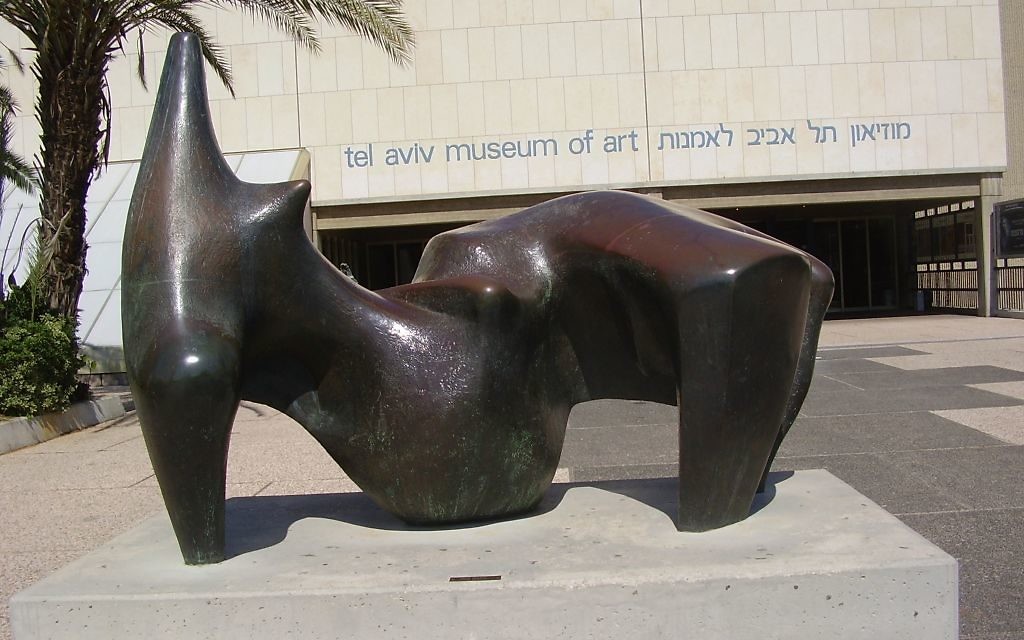6 Years Through the Looking Glass of Aliyah
Our new Israel columnist took a relaxed approach to settling into the life of an immigrant in Israel.

Dr. Harold Goldmeier is a public speaker and writer teaching business and politics to international university students in Tel Aviv and Jerusalem. His book “Healthcare Insights: Better Care Better Business” is available on Amazon. His articles and reviews appear on investment site Seeking Alpha, American Thinker, Arutz Sheva, Life in Israel, The Jerusalem Post and more. He was a research and teaching fellow at Harvard.
This being my maiden article for the Atlanta Jewish Times, I think it best to briefly describe a chip or two from the wall of noise during six years of aliyah.
I wound down after selling our family business in Chicago, then realized I needed a more productive future and adventure. Now I had to figure out what to do with the rest of my life.
My wife suggested I go visit a new Israel-born granddaughter. “Don’t come home without an apartment,” she coaxed on a Wednesday while I was there. Sunday, I signed the lease.
Get The AJT Newsletter by email and never miss our top stories Free Sign Up
During months waiting for our lift (shipping container) and ulpan (free government classes to learn Hebrew and meet other nervous newcomers), my wife and I were together more than we spent together in 43 years of dating and marriage. On a walk out the door, I ask: “Where are you going?” Her answer: “No matter. I’m going alone, and you’re not coming with.”
On the second day in Israel, we go to a wedding of grandchildren from former Chicagoans. The next morning (Day 3) we take our first public bus ride to view the exhibitions of the 50 most talented student artists with works on display in the Tel Aviv Museum of Art.
“They need an audience,” she cajoles this jet-lagged body. I point to the erogenous bronze sculpture adorning the museum entrance.
“That’s a Henry Moore,” she replies nonchalantly, as if everybody knows that.
Three hours later we trek to the glittering Azrieli Mall. It radiates vitality and defines Israel’s urban joie de vivre. We window-shop, down our first restaurant aliyah meal of Japanese mall food and pray Mincha (afternoon prayers) in the mall.
I don’t have to work in Israel to survive. No rush to take the first low-paying job offered olim and IDF kids recycling back into society.
I settle in with English-language newspapers and online sites that supply my daily news fix. At Shabbat dinners I learn quickly from a kick under the table what to say and when to zip it. Talk about the cultural discordance of aliyah, religious political domination, politics, shocking poverty, corruption and #MeToo besting the IDF, national, local and rabbinic leaders is off limits.
For example, the #MeToo movement spreading across the world in 2017 might well have started in Israel, sorry to say, a decade sooner, but for the diffidence of Jewish girls bound by the stewpot of macho dominance permeating education, religion, cultural institutions and security concerns.
President Moshe Katsav is sentenced to seven years in prison for rape, indecent acts, sexual harassment and obstruction of justice at the cusp of our arrival in Israel. More women go public over the next few years. Prime ministers, Knesset ministers, mayors, chief rabbis and IDF officers are accused, demoted, forced into retirement or jailed. These topics are the elephant at the dinner table olim avoid but are de rigueur in America.
Israel is a young people’s paradise for Arabs, Jews and Christians, according to the Jewish Virtual Library Project of AICE: 28 percent 14 or younger; only 10 percent are older than 65. The average age is around 29.
The World Health Organization rates Israel sixth of 188 countries in global healthy life expectancy — wars, terrorism and all. Israel enjoys the highest birthrate in the developed world at 3.1 children per woman. Mexico is a distant runner-up with an average of 2.2 newborns.
The World’s Happiness Report rates Israel the 11th happiest country in the world for the fourth consecutive year. To confirm it, readers in their 20s and 30s are invited to the White City (sobriquet for Tel Aviv) community Friday night meal this week, featuring the Indian Curry Shabbat Feast.
Everything in the Diaspora we learn about Israel is from tour guides and fundraisers. The only reality we know comes from media. Aliyah mimics Snow White and her adventures fleeing into the dark unknown to live the dream of Xanadu. It’s a suspenseful ride here, with lighthearted and frightening moments, with some perils and fireworks.
As Dr. Seuss encourages at the end of “Oh, the Places You’ll Go”:
“So … be your name Buxbaum or Bixby or Bray or Mordecai Ali Van Allen O’Shea, you’re off to Great Places! Today is your day! Your mountain is waiting. So … get on your way!”
Dr. Harold Goldmeier is a public speaker and writer teaching business and politics to international university students in Tel Aviv and Jerusalem. His book “Healthcare Insights: Better Care Better Business” is available on Amazon. His articles and reviews appear on investment site Seeking Alpha, American Thinker, Arutz Sheva, Life in Israel, The Jerusalem Post and more. He was a research and teaching fellow at Harvard.




comments